The evolution of South African currency: a journey through history
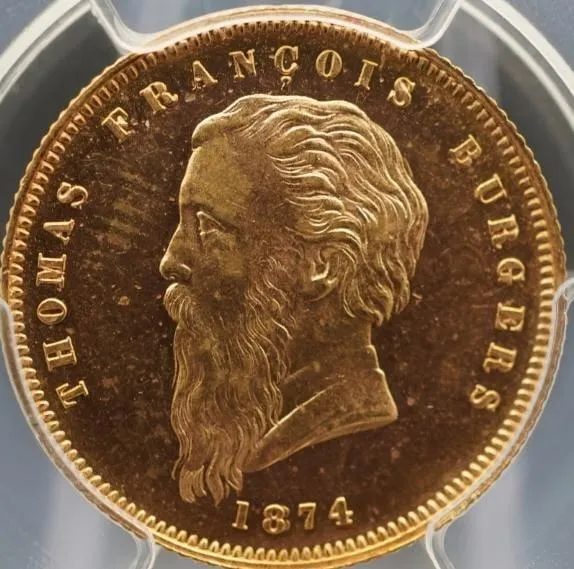
1874 burgerspond Fine Beard- Only 695 minted.
Image: Bassani
From presidents to springboks, South Africa’s currency charts a journey through power, pride, and identity. Coins and banknotes may seem like mere currency, but in South Africa, they are vessels of history. Each design, engraving, and mint mark tells a story, capturing the country's political shifts, cultural pride, and natural heritage. From early colonial issues to modern-day tributes to democracy and biodiversity, the timeline of South African money reflects the nation itself.
1874: The Burgerspond – a controversial beginning
The story begins with the Burgerspond, struck under President Thomas François Burgers of the Zuid-Afrikaansche Republiek (ZAR). South Africa’s first coinage, these gold coins sparked debate in their day but are now cherished as historical treasures.
Two versions exist — the “fine beard” (fetching over R500,000 in top condition) and the rare “coarse beard,” which can command over R1 million. Both remain iconic reminders that money can be both a tool of statehood and a collector’s prize.
1892–1902: Kruger’s legacy in gold
The ZAR under President Paul Kruger introduced coinage bearing his instantly recognisable image. These gold ponds and silver coins not only served commerce but also became enduring emblems of Afrikaner nationalism. Today, they remain among the most collected South African coins worldwide.
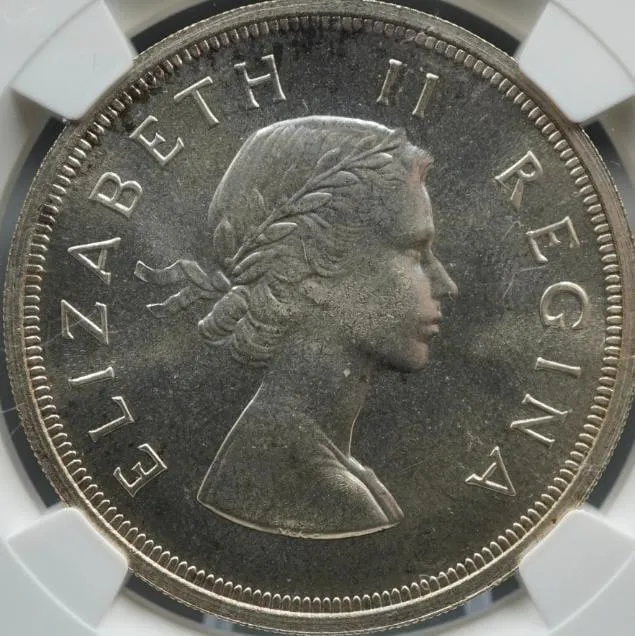
Queen Elizabeth II- on sa coins - 1953-1960
Image: Bassani
1923–1960: a Union under the Crown
With the formation of the Union of South Africa, the country adopted British-influenced designs. Coins featured monarchs like King George V, King George VI, and Queen Elizabeth II — reflecting South Africa’s Commonwealth ties.
Among them, the 1931 "tickey" (threepence) stands out: a diminutive silver coin now worth up to R300,000, depending on its condition. Small in size, but huge in numismatic significance.
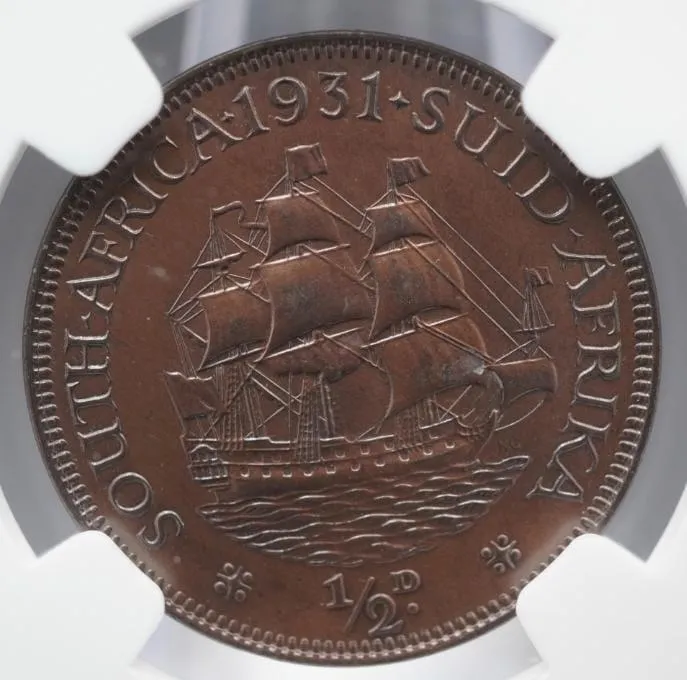
1931 Suid-Afrika half Penny (PF65BN) Only 62 minted and value of over R50 000. This is a very rare variety with most from this year reading Zuid-Afrika
Image: Bassani
1961–1990: a republic reimagines Its money
South Africa’s declaration as a Republic in 1961 marked a shift in symbolism. The image of Jan van Riebeeck replaced monarchs on early decimal coins, followed by portraits of South African presidents.
This era reflected a growing emphasis on national identity, though still shaped by the political narrative of the apartheid regime. The 1965 Afrikaans R1, today valued at over R40,000, remains a sought-after piece from this period.
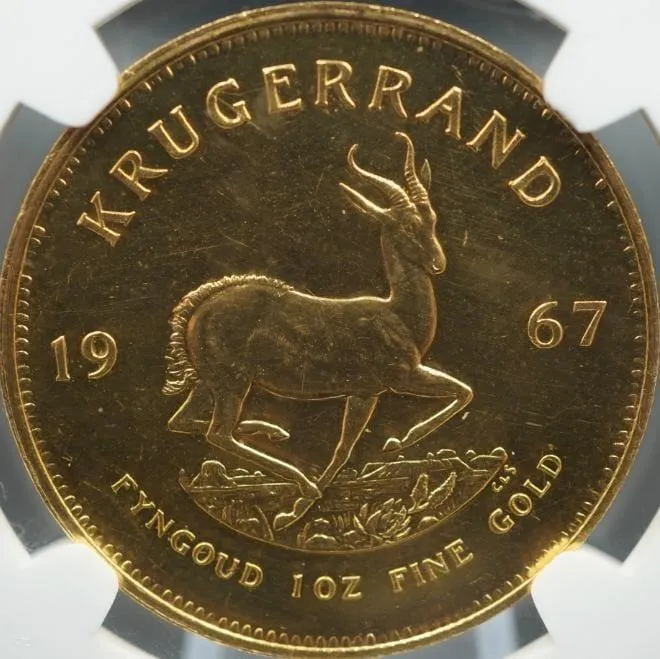
1967 Krugerrand- First Krugerrand- This is the first bullion coin in the world which means the price is connected to the gold price of the day.
Image: Bassani
1967: the Krugerrand goes global
The Krugerrand, introduced in 1967, revolutionised the coin world. As the world’s first modern bullion coin, it offered investors an accessible way to own gold. It quickly became the most traded gold coin globally, cementing South Africa’s place in international numismatics.
Over the past few years, gold has proven just how powerful it can be as a store of value. In early 2022, the gold price in South Africa averaged around R29,000 per ounce. Fast forward to today, and it’s trading near R65,000 per ounce — more than doubling in less than four years. This surge is driven by a mix of global uncertainty, inflation, and the rand’s weakness against the dollar, which amplifies the gold price locally.
For South Africans, this has made gold one of the most reliable hedges against currency depreciation and rising living costs. The impact is clear: those who bought Krugerrands in 2022 at about R29,000 are now holding assets worth well over double that.
Banknotes: paper trails of power
South Africa’s banknotes tell a parallel tale:
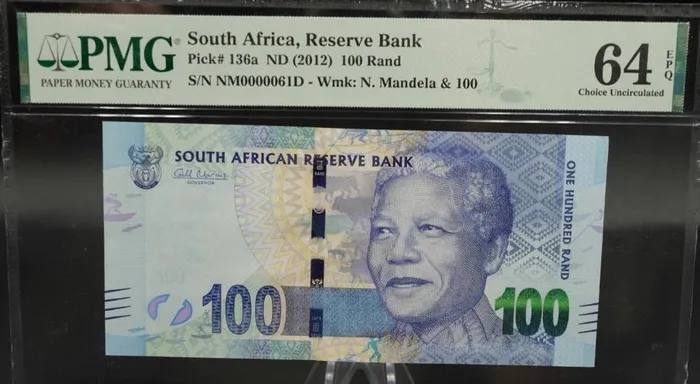
2012- First year of Nelson Mandela on South African banknotes
Image: Bassani
- 1921–1960: Early Union notes, bilingual in English and Afrikaans, echoed British aesthetics and imperial authority.
- 1961–1990: With decimalisation, Jan van Riebeeck took centre stage, followed by a shift to wildlife imagery — a subtle nod to emerging South African themes.
- Post-1994: The democratic era brought transformation. In 2012, notes were redesigned to feature Nelson Mandela on the front and the Big Five animals on the reverse — blending human legacy with natural heritage.
2000s: coins of democracy and celebration
As democracy flourished, so did diversity in coinage. Nelson Mandela first appeared on the 2000 R5, with commemorative issues in 2008 and 2018 marking key milestones. Other coins celebrated national pride:
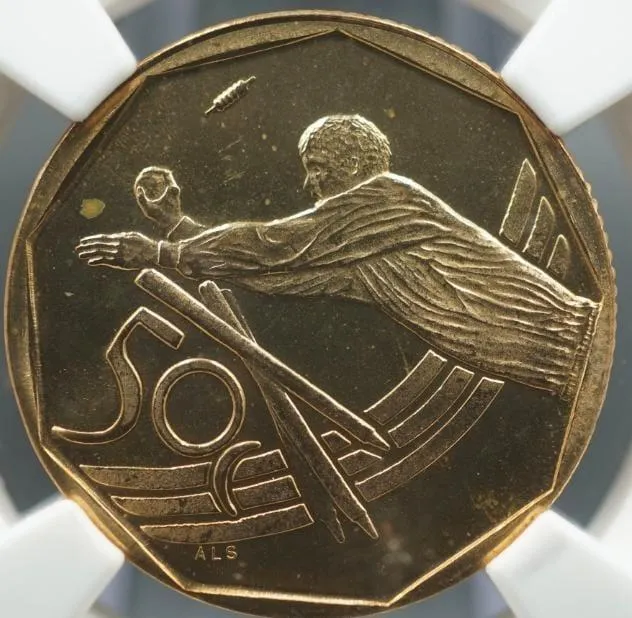
2003 50 Cent- First time a South African Sports star is on a SA coin. Jonty Rhodes, while doing a famous runout in 1992 in a match against Pakistan.
Image: Bassani
- 2002 R2: Honouring Bafana Bafana’s 1998 World Cup qualification
- 2003 50c: Featuring Jonty Rhodes, the first sports figure on a South African coin
Women make their mark
Where once they were invisible, women have increasingly featured on coins. Pioneers such as Nadine Gordimer and Albertina Sisulu have been honoured for their cultural and political legacies — a recognition long overdue.
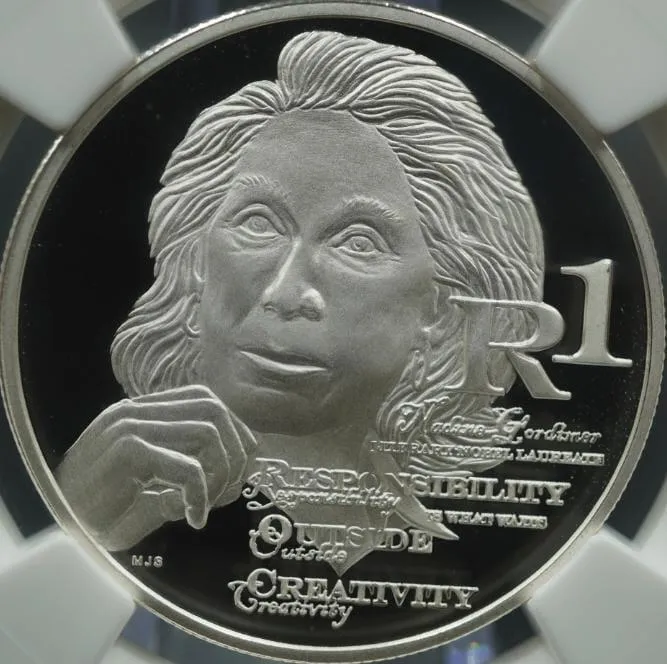
Nadine Gordimer- On a commemorative R1 coin
Image: Bassani
2023: living heritage in everyday change
The latest circulation series, launched in 2023, highlights biodiversity and cultural heritage. The coins include:
- 10c: Honeybee
- 20c: Aloe
- 50c: Knysna Loerie
- R1: Springbok
- R2 & R5: Southern Right Whale and other marine life
This nature-themed series reminds South Africans that heritage is more than history — it’s also the land, creatures, and traditions that sustain us.
Coins and notes as national memory
From the Burgerspond to the Krugerrand, from monarchs to Mandela, the evolution of South African money mirrors the country's journey. Designs have shifted with power, politics, and pride — and many of these pieces are now as valuable as they are meaningful.
Whether you’re a collector, a historian, or just someone reaching into your wallet — you’re holding a piece of the past.
Did you now?
- A 1965 Afrikaans R1 can sell for R40,000+
- The coarse beard Burgerspond is worth over R1 million
- The Krugerrand remains the most traded gold coin in the world
Related Topics: